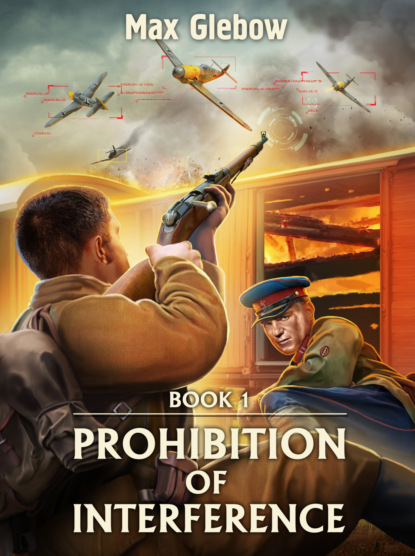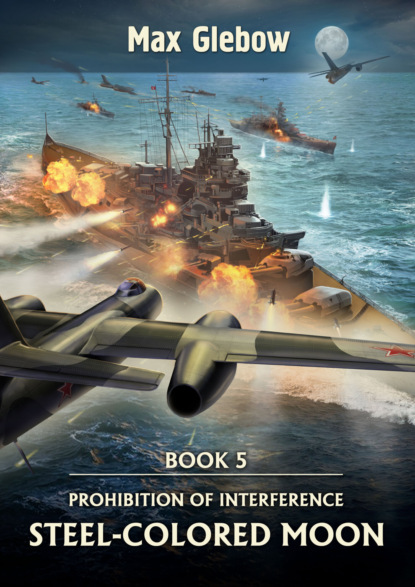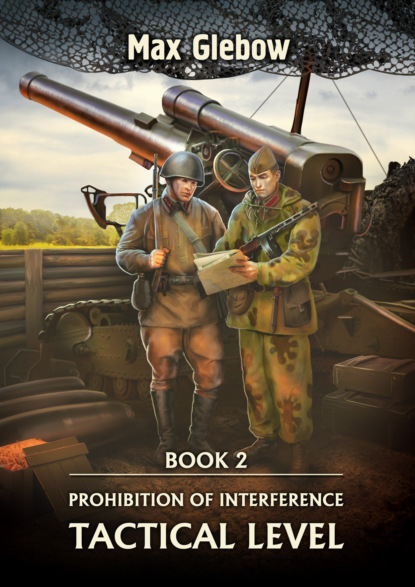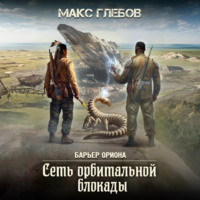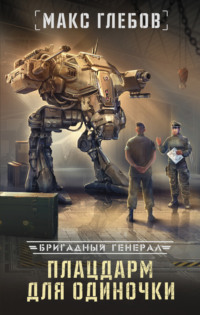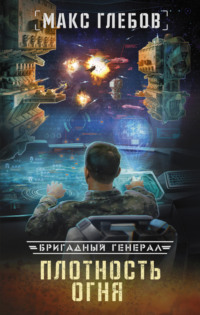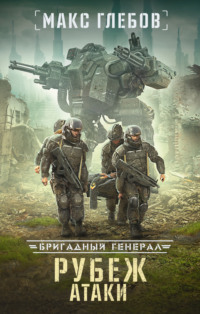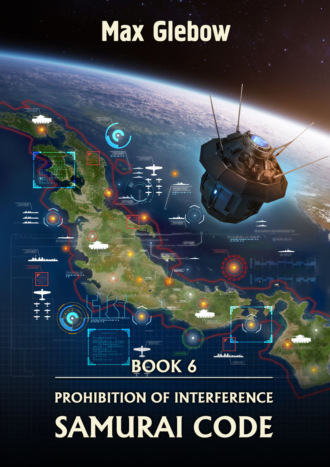
Полная версия
Prohibition of Interference. Book 6. Samurai Code
“The target is leaving port,” Letra reported succinctly.
Well, it's about time. The Japanese decided to be on the safe side and put to sea in the evening to be able to get out of range of the Allied planes during the night. Apparently, they were not expecting an attack, but obviously the commander of the Zuikaku thought that extra caution in war was never a bad thing.
The dark time of day was only to my advantage. I took my time getting out of the HQ dugout and, with the help of the liaison officer, who spoke a little Russian, I warned the Chinese airfield commander that we were getting ready to take off.
I didn't have to look for Kudryavtsev. The Major-General, seeing from afar how the Chinese officer rushed to carry out the order, immediately understood, what was going on and hurried over to me himself.
“As you may recall, this is not my first time in China,” grinned the regimental commander, “I remember that if the Chinese start making such a fuss, it means something serious is going on. Shall I prepare the regiment for a combat flight?”
“We shan't all go, there's no point. I need ten planes with outboard fuel tanks.”
“Is the target at sea?”
“Yes. The heavy aircraft carrier Zuikaku, escorted by two destroyers, is scheduled to leave port on Okinawa Island this evening in a southeasterly direction.”
“This is a serious ship,” Kudryavtsev nodded, “We hang two ABOV-1000 bombs each?”
“Only on a couple of ILs. Let the pilots of the other planes take armor-piercing bombs, the Zuikaku has an armor deck seventeen centimeters thick.”
“Why don't we take at least twenty planes? Ten with bombs, and the rest as fighters. It's not a battleship, it's an aircraft carrier. Her fighters could meet us before we even get there.”
“At night? I doubt it, and besides, it's unlikely they'll be able to intercept us, given their speed.”
I answered with full confidence in my voice, but something in my own words seemed wrong. It was not easy for me to give up the stereotypes I had formed, but I reminded myself that it was time to get used to the new realities, in which the opponent's capabilities would not always meet my expectations.
“Permission to perform?” Kudryavtsev interrupted the pause.
“Just a minute, General. I guess you're right. Get twenty ILs ready to take off. After all, this is our first operation in China, so we need to take some precautions, and I think we need to think about the types of bombs.”
* * *We flew over the coastline at an altitude of eleven kilometers. Despite the very small reserve of fuel, I still led the group not straight to the target. I decided to take it as an axiom that the enemy knew about our operation, and I thought it right not to reveal our plans ahead of time. Now our course clearly indicated that we were going to Taiwan. There, too, were many attractive targets for an attack, and the Japanese must have remembered the relatively recent history of such a raid. In 1938 Soviet pilots attacked their airbase on this island. The SB bombers then dropped nearly three hundred bombs on the Japanese airfield and destroyed forty naval aircraft, so I hoped that the enemy would focus on preventing a repeat of that scenario.
“Satellites detected that the rebel drone's short-range communications system in orbit started transmitting,” Letra reported. “The signal is directed to the center of Tokyo. I'm afraid the enemy will know about your group's departure. I can't intercept or jam the signal.”
All I had to do was wait for the reaction of the Japanese. I did not know which of Japan's top military leaders the rebels had chosen to contact, but he did not seem to be able to believe the information obtained in such an unusual way.
Twenty minutes passed in anticipation. Nothing changed in the darkness around us, and only on the virtual map the marks of the group's planes were moving farther and farther southeast, approaching the island of Taiwan.
“Fixing the radio exchange between the General Headquarters of the Japanese Navy in Tokyo and the fleet base in Taiwan,” Letra reported, and after a pause of about a minute, she continued, “The island's military facilities are on alert.”
“When will we be in range of the Japanese radars?”
“In ten minutes. Their radars are bad – they're way behind the leading countries in the world.”
I turned on the radio to transmit the order to change course. Our appearance over Taiwan would be a direct confirmation of the information, obtained by one of the Japanese staff officers from the rebels. And I wanted the Japanese to believe their new allies as late as possible. However, instead of the usual rustle of the air, a squeal of interference burst into my headphones.
“Letra, get in touch!”
“I'm in touch,” the artificial intelligence immediately responded, “that’s an attempt to suppress radio signals.”
“It is quite a successful attempt, by the way. I can't radio the other planes in the group.”
“I turn on rebroadcasting via satellites.”
The howls in the headphones subsided.
“Thirty degrees to the right. Do not change the height.”
The group skirted the island in a great arc. As tempting as it was to drop a couple of fuel-air bombs on the Japanese airbase, we shouldn't have done it. My target was the heavy aircraft carrier, and anything that could prevent its destruction was to be put aside until better times.
We went around Taiwan from the north. The Zuikaku and her escort destroyers had already gone almost two hundred miles off the island. I had no doubt that our goal was now crystal clear to the rebels, but whether the Japanese would believe them after the information about the coming attack on Taiwan had not been confirmed, was a very interesting question.
“Fifteen minutes to target,” Kudryavtsev reported, and almost immediately there was a message from Letra.
“Captain First Rank Yokogawa received a radiogram from Tokyo… The Zuikaku turns her nose against the wind… The aircraft carrier raises her fighters.”
The Japanese believed the rebels, and now our task was dramatically complicated. It is one thing to destroy enemy ships on a steady course by a surprise night attack from a high altitude, and quite another to bomb targets that are actively maneuvering, and with the opposition of fighters.
I had originally intended to drop bombs on the Japanese ships without descending, that is, from an altitude of about eleven kilometers, where the on-deck Zero fighters and anti-aircraft artillery posed no danger to us, but this plan could only work if our attack was totally unexpected. Even with perfect aiming, an unguided bomb from this height can only hit a ship going at a constant speed and not trying to evade. Naturally, we had a backup plan, though I hoped we wouldn't have to resort to it. I hoped, as it turned out, in vain.
“Group, initiate descent. "Seventh" and "Twelfth," illuminate the targets!”
We were already practically over the Japanese ships. Naturally, nothing was visible below, and without the illumination no one but me could attack the targets. Letra's help here wasn't very effective either. Pointing aircraft at maneuvering targets by radio is extremely difficult because of the too rapid change of their coordinates and the quite natural lag in the reaction of pilots to commands.
A scattering of bright lights flashed below – the "chandeliers" of flare bombs hung over the enemy's ships. Realizing they were detected, the Japanese turned on their searchlights, trying to help their pilots and anti-aircraft gunners see the targets.
“Fighters, clear the sky!”
The Japanese planes that took off from the deck of the Zuikaku did not go far from their ships, patrolling the sky at an altitude of about a thousand meters. They didn't see us, but they hoped to intercept the bombers as they came in to attack the aircraft carrier. But the first to appear over the Japanese ships were the IL fighters. A brief skirmish in which both sides feverishly tried to see each other in the wrong and too contrasting light of the "chandeliers," created chaos in the sky. Eighteen Zero planes were chasing eight twin-engine IL planes, guided by the bright cones of the exhausts of their turbojet engines, but the Japanese found it unexpectedly difficult to catch up with these rather large planes.
Traces of fire crisscrossed the sky. One of the Japanese planes erupted and crashed into the dark waves, disintegrating into pieces. The searchlight beam mounted on the bow of the destroyer hit one IL, and chains of shells stretched from the ships to the plane. However, this target was too fast for the Japanese anti-aircraft gunners, and it almost immediately left the firing zone.
“The fighters are taking the Japanese with them,” Kudryavtsev reported, “Permission to begin the attack on the main target?”
In fact, not all the Zeros rushed after our fighter cover. Seven Japanese remained to cover the aircraft carrier, but it was unlikely that they could have seriously interfered with us.
“Beginning approach to targets. "Nineteenth" and "Twentieth", you attack the destroyers. "Seventh" and "Twelfth," you will provide illumination and photo-fixation of the impact results. For the rest of the planes, the target is the aircraft carrier.”
Even though they had been warned in advance of our attack, the Japanese could only make it difficult for us to complete our mission, but with their countermeasures the aircraft carrier had no chance of fighting back. But the commander of the Zuikaku didn't know that, and in any case it wouldn't have occurred to him to surrender.
* * *Captain First Rank Yokogawa realized almost immediately that his ship was being attacked by an unusual enemy. This was evidenced, in particular, by the fact that he had been warned of the danger by a radiogram from Tokyo. How could they have known about the impending attack on the Zuikaku? Information supplied by agents? But it doesn't come that quickly. And that warning came just in time – he barely had time to raise his fighters from the deck.
The radiogram did not say whose planes were approaching Yokogawa's ships from the northwest. Clearly, it was probably the Americans or the British, but the pilots from Zuikaku had never seen such planes before. At the beginning of the attack, radio communication was lost. For about a minute the air was thick with interference, but then it suddenly disappeared and the Zero pilots were able to report back to the ship that they were dealing with very fast twin-engine fighters, armed with powerful cannons and leaving short but brightly glowing trails behind them while flying.
The searchlight beam caught the silhouette of an enemy plane out of the darkness for a few seconds, and Yokogawa was convinced that he had really never seen anything like it before. And yet they were only fighters. They didn't try to attack the ships and didn't seem to have any bombs. Yokogawa did not believe that the enemy had found them in the night sea solely to play catch-up with the Zero planes of his air group, which meant that it was only a diversion and that somewhere in the darkness enemy bombers were preparing to attack. They were not visible and, by all appearances, the anti-aircraft crews would only notice the enemy planes when they are already over the ship.
The aircraft carrier commander was unpleasantly surprised how easily enemy pilots navigated the night sky, but there was nothing he could do about it, and he simply had to accept that fact and move on, based on the new realities. From which direction would he attack his own ships? Part of the Zuikaku air group is pulled west in an attempt to catch up and destroy enemy fighters. The destroyers and aircraft carrier are maneuvering, but maintain a general vector to the southeast. The wind is moderate and can't play much of a role…
Yokogawa closed his eyes, trying to distract himself from the sounds of battle and listen to his intuition. This war taught him a lot, and, above all, the experience told the commander of the Zuikaku that in the absence of information about the enemy he should not disregard his own premonitions, because they are not based on mysticism, but on the subconscious generalization of all available information by the brain.
“Bombers' attack from the northwest!” The subordinates heard not a shadow of doubt in Yokogawa's voice, which rang like a steel string in the Zuikaku's cockpit. “The altitude is 1,500 meters. Fighters, intercept the enemy! All air defenses open a barrage!”
* * *The ILs, armed with armor-piercing bombs, lay down on a combat course. Below us we could see a scattering of bright spots of "chandeliers" slowly descending on parachutes, in the light of which the winding keel trails left by the Japanese ships, which were maneuvering desperately, were well visible.
On the virtual map, Letra highlighted for me the optimal attack trajectory. The wingmen were guided by the exhaust of my plane's engines, trying to repeat all my actions. The enemy haphazardly scanned the sky with searchlights. The anti-aircraft guns were silent – their crews could not see any targets. The Zero planes that were trying to cover the aircraft carrier were also operating on their own, searching blindly for the enemy in the dark skies. I didn't see any reason to be particularly worried… And suddenly everything changed.
“Danger!” The artificial intelligence shrieked in Letra's voice!
The Japanese ships exhaled fire at once. Dozens of barrels pulsed with bursts of gunfire, and fiery dotted lines of tracers streaked toward us. For the first time in this war, I saw Letra confused. On the virtual map, several possible evasive courses were displayed at once, but with each passing second hundreds more bullets and shells flew toward us, and trajectories that had just seemed safe, turned into death traps.
How did the Japanese know about us? They just couldn't see us, but the barrage fire was opened at exactly the moment when our planes were at their most vulnerable. I threw my IL down-right, already realizing that I had no time to dodge enemy fire. The plane shuddered twice. A hole formed in the side window of the cabin and at the same time something hit me hard on the head. I didn't lose consciousness, even though everything around me blurred, as if I suddenly looked at the world around me through a layer of flowing water. A hot trickle of blood ran down my forehead, but my vision gradually returned to normal.
“The right engine is damaged!” There were panic notes in Letra's voice. “In one minute it will start overheating, in three minutes it will start a fire. You're badly concussed. Pull yourself together, Lieutenant, or everything will be for nothing!”
Somewhere behind me, a ball of fire erupted in the sky. One of our planes got hit by a shell that made the bombs detonate, but that was the end of the Japanese anti-aircraft gunners' luck. We skipped through the barrage zone, and with an effort that caused a flash of headache, I got the plane back on course. Here it was, the aircraft carrier Zuikaku, not inferior in armor to a heavy cruiser, but not as maneuverable as the destroyers because of its enormous mass.
I corrected my course a little, following Letra's clues. Just a few more seconds… Bombs away!
A bright flash ripped through the darkness of the night below and slightly ahead. One of Kudryavtsev's pilots dropped a fuel-air bomb on a Japanese destroyer. He did not manage to get an accurate hit, but the close explosion of the ABOV-1000 was fatal for the light ship. A fire broke out on the destroyer and almost immediately something exploded in the internal compartments, jets of fire and a fan of incandescent debris flew into the sky.
Seconds later, my bombs struck the unarmored flight deck of the Zuikaku twenty meters apart, they breached it and penetrated into the two tiered aircraft hangars below. Half a minute later, three more explosions shook the ship – Kudryavtsev and two of his pilots didn't miss either. A shortcoming of the Zuikaku design was the lack of armor protection for the fuel tanks and gas lines, and this omission proved fatal for the ship. Only two bombs penetrated the armored deck separating the aircraft hangars from the ship's inner compartments, but the burning fuel that rushed into the breaches made it impossible to continue fighting for the survivability of the heavily damaged aircraft carrier.
The carbon dioxide fire suppression systems were not designed for a fire of this magnitude, and the flames quickly engulfed the entire ship. Air bombs and torpedoes prepared for the planes standing in the hangars began to explode in the burning jet fuel. I didn't get a good look at all of this until later, in the recording that Letra made. At that moment I had completely different problems.
“The right engine is on fire!” The panic was gone from Letra's voice, but it sounded grim and worried. “The engine is out… The fire is out. Lieutenant, you won't make it to the airfield on one engine.”
“And as far as the Chinese coast?”
“Maybe. With local machinery, especially damaged machinery, predictions are not reliable.”
I made contact on the common wave.
“Group, this is "Cruiser," heading northwest! Congratulations on a successful combat mission! "Second", take roll call and report casualties and damage.”
On the virtual map, I saw that we lost two planes and three more planes took shrapnel hits that had almost no effect on their speed. Kudryavtsev's report, which sounded five minutes later, naturally coincided with these data.
Unlike the other planes in the group, my IL was a single-seater. On my order, it was redesigned back in the Soviet Union, so now no one but me knew about the condition of my plane. The group was gradually moving forward toward the Chinese shore, and I, with my only engine, was falling further and further behind. It was time to make Kudryavtsev aware of my problems.
“"Second", this is "Cruiser". Take command of the group. I've got a busted right engine. I can't go faster than 500. I'll try to make it to the shore and jump. Your job is to bring our planes home. Before I jump, I'll give you my coordinates so you can find me, but first I need everyone to land in one piece. You are personally responsible for this. Is the task clear?”
Kudryavtsev replied after a few seconds. “ "Cruiser", this is "Second", the sun will soon rise and you will be intercepted by Japanese fighters from Taiwan. You won't make it to the Chinese coast.”
“Execute the order, General!”
Kudryavtsev, ignoring my words, began to give orders.
“"Seventh", "Fourteenth", and "Fifteenth", continue on your previous course. "Third" and "Nineteenth", escort the damaged planes to the airfield. The rest of the group, keep the speed of four hundred and fifty. Secure the commander's damaged plane.”
“This is disobeying an order in a combat situation, Comrade Kudryavtsev. Do you want to be court-martialed?”
“I can be court-martialed, Comrade Colonel General. But only on your written order.”
I grinned silently. I will only be able to give the order in writing if I get to ours, which, in fact, the "Second" is trying to do. Well, let it be so, especially since Kudryavtsev is right – I could really run into the Japanese on my way to the Chinese coast.
My head was hurting more and more.
“Letra, what hit me so hard?”
“A shard of armored glass. The close explosion of an anti-aircraft shell. You're still lucky.”
“I understand that myself,” I tried to nod, which made me dizzy. And that's how bad I feel, even under the influence of the "battle cocktail". Without it, I would have passed out a long time ago.
Letra found no damage to my IL's control system, but the further I flew, the more it seemed that the plane was not obeying me well. I had to forget everything else and concentrate solely on piloting.
“Commander, how's your plane?” Kudryavtsev's question sounded in my headphones, and it echoed in my head in a strange way. The blows to the skull are fraught with consequences. Either something shifted there, or it was a side effect of the chemicals injected into my bloodstream.
“It's flying so far…” I struggled to answer.
“You sound strange. Are you hurt?”
“I got hit in the head with a piece of glass, but I'm in control for now.”
“So… Hold on and don't get distracted by anything. The main thing for you is to make it to the shore, to jump properly, and to land without breaking your neck. We'll do the rest.”
Kudryavtsev was no longer in contact with me, but Letra was broadcasting his talks and commands to me. To begin with, the Major-General alerted the entire regiment. It was probably wise, especially since there was an unhealthy commotion at the Taiwanese airbase of the Japanese. At an airfield south of Hong Kong, Zero squadrons were also preparing for takeoff. The Samurai didn't seem to like what we did to the Zuikaku very much. They were thirsty for revenge, and someone was not averse to helping them in that endeavor.
* * *Lieutenant of State Security Ignatov never got to sleep that night, and, to all appearances, he was not the only one like that at the Chongqing airbase. The Lieutenant came out of the officers' dugout to get a breath of fresh air, which, to tell you the truth, wasn't much outside either. The stuffy, windless night pressed on his psyche, a scattering of stars twinkled in the dark sky. The Lieutenant did not immediately notice a lone female figure against the background of the planes covered by camouflage nets – Lena also decided to go outside.
“They should be back at dawn,” she said as Ignatov came and stood beside her. “I'm uneasy, I feel that something is wrong.”
“This always happens when you're really looking forward to the return of a loved one,” Ignatov tried to reassure her. “Nerves…”
“It has nothing to do with nerves,” she shook her head negatively. “This time, as he was leaving, I didn't feel him to be confident. Pyotr didn't like something, but he didn't say what it was. And Kudryavtsev acted strangely, too. I heard him tell the regiment chief of staff that Nagulin had never changed his mind before, but this time he almost immediately agreed to double the number of planes assigned to the operation.”
Ignatov was silent, pondering what he had heard, and Lena spoke again:
“There's nothing worse than standing and waiting like this…”
The alarm squealed, breaking the silence of the night. That sound did not mean an attack on the base, but undoubtedly something important happened. Lena and Ignatov ran to the dugout of Colonel Lebedev, to whom they both now reported.
In a minute their entire combined team was already gathered in the dugout. Lebedev had just finished talking to the Air Regiment Chief of Staff. The officer ran upstairs as if someone was chasing him. Ignatov had never before noticed this elderly Lieutenant Colonel running so fast, and this stressed him even more than the alarm that had just stopped howling.
Lebedev looked around his subordinates with a heavy gaze, and held it on Lena for a split second.
“Colonel General Nagulin's air group completed its combat mission,” the Colonel said in a strained voice, “The aircraft carrier Zuikaku is destroyed. The group lost two planes and is now approaching the Chinese coast. The commander's IL sustained combat damage. Nagulin himself is wounded and is trying to reach the shore, where he can leave the plane with a parachute. The air group is covering him, but at dawn the Japanese can attack them with superior forces. Lieutenant General Kudryavtsev radioed an order to raise the regiment in the air and suppress the enemy's attempts to destroy the planes returning from the mission.”
“How bad was his injury?” Lena interrupted the commander, unable to stand it.
“Severe concussion. There is no more exact information,” Lebedev pretended not to notice the insubordination. “Squad, listen to the mission. Now we'll load up on the transport plane and fly right behind the air regiment's planes. Colonel General Nagulin will give us the exact coordinates of the place where he will leave the damaged plane. We immediately fly to this point and perform the landing. Kudryavtsev's pilots will cover us. Our goal is to find Comrade Nagulin, help him, and ensure that he gets to our units. Any questions?”


